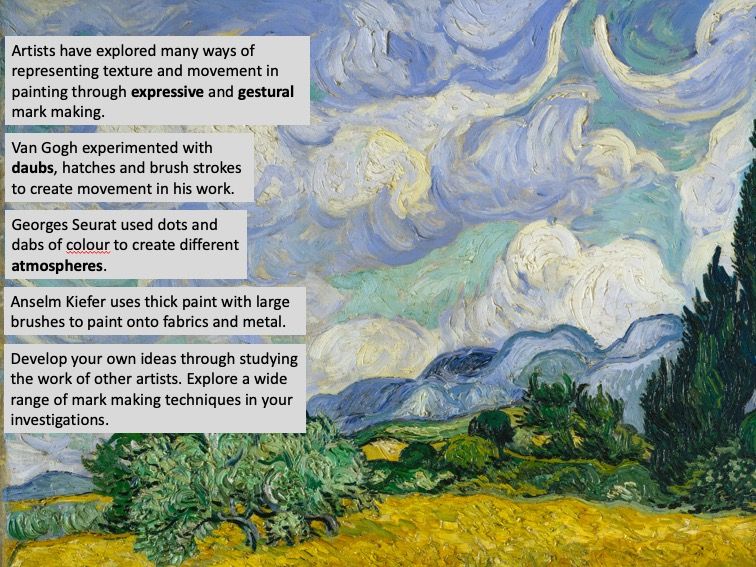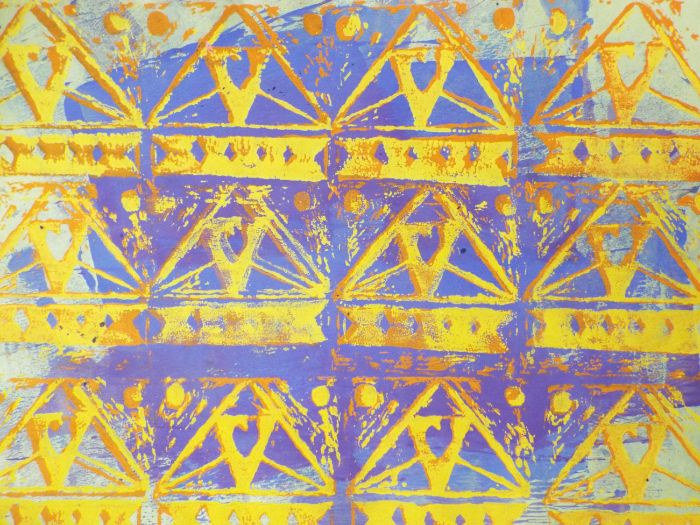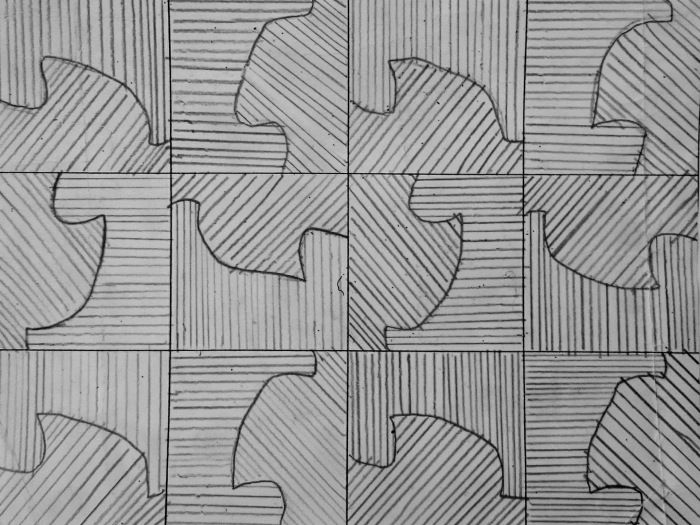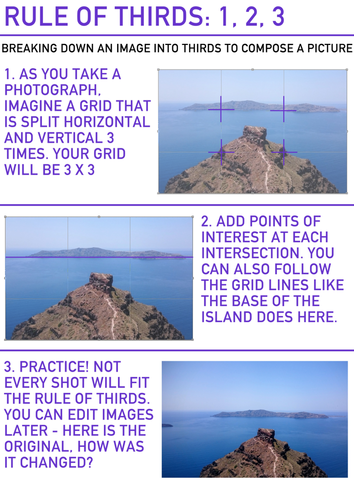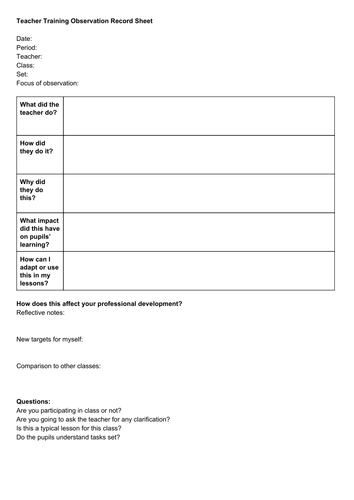
32Uploads
53k+Views
10k+Downloads
All resources

KS3 Art and Textiles Hand Embroidery Project
This simple textiles art project is ideal for teaching younger students as it is really short but engages students by giving them lots of choice in their work. Students love the bright colours, the different shaped stitches and, of course… the sweet, sugary subject!
Students learn basic hand stitches: running, back, chain, French knot and have the option to learn more if they can.
The outcomes are so fun and students loved using the felt tips on the fabric. The presentation includes lesson starter activities, plenaries, reflections etc. and breaks down the steps into really simple to follow instructions. There are links to appropriate artists and links to free handouts to use too.
Bundle

Art Bundle! KS3 Colour Theory / painting schemes of work
These art colour theory projects are two of my most popular resources so I have bundled them to create a discount.
They are both full schemes of work, one based on Abstract Still Life and one based on the artist Kandinsky. I have used paint when teaching both of them, but I’m sure the Abstract Still Life project can be adapted to use coloured pencils / felt-tip pens and brushes etc.

GCSE Art Scheme of work - landscape and mark-making project
The aim of this project was for students to explore a range of mark making techniques, then choose the most suitable for their landscape ideas.
The outcomes were painted (and printed) landscapes, focusing on movement, atmosphere and texture. The brief was:
Many artists are inspired by landscapes. Some draw or paint from direct observation, others create pieces from memory. Research relevant artists, looking at how they create movement and different atmospheres in their work. Develop mark-making techniques then produce a final outcome based on a landscape you have happy memories of.
Students started by looking at artists such as Van Gogh and Georges Seurat.
This project includes all of the lessons I used, including starter activities, plenaries, assessments etc. It includes over 40 slides.
It has a range of artist research starting points and teaches a large range of techniques including, pointillism, dry brush, monoprinting, collage, painting with glue, impasto, textures etc.

KS3 Poly-Printing Art Scheme of Work
This art scheme of work is to teach the poly printing technique to students in a fun way. It is inspired by Adinkra symbols and includes all of the information you need to teach poly printing effectively, all of the start activities, entry tasks, plenaries, reviews / student assessments etc. It even includes cleaning up roles!
The full project includes a lot of information for lessons on colour theory and links to an artist (looking at creating textured backgrounds to print onto).
There are 30 slides in total and I have taught this project over 6 - 8 week term, but obviously you could shorten it if you need to. It includes examples of student work and teaches students to understand some basic pattern design.

LGBTQIA+ List of artists - help sheet to be shared online or printed
A comprehensive list of LGBTQIA+ artists from around the world, from painters, to photographers, sculptors and animators who identify as LGBTQIA+
This pdf shows over 60 artists identifying as LGBTQIA+. The aim is to celebrate their work, their lives and share their artwork with our students.
The pdf has a picture of the artist’s work, their name and a direct link to the artist’s website: ideal for sharing with your students online or printing out for lessons. There is a QR code that students can scan if the document is printed out for them.
The pdf has 6 pages with the artists listed clearly and in alphabetical order.

Creating patterns inspired by MC Escher full art project
This is an art scheme of work focusing on pattern design. Using MC Escher as a reference and research point, the lessons look first at optical illusions, then at different aspects of pattern design, pattern repeats and colour theory. The lessons are designed for students of all abilities, and draw on any previous work (students select sections of their work, or photographs etc. to work from).
I have used this scheme of work with KS3, however it could easily be differentiated to KS2 or 4.
It includes full lessons, with Starter / Plenary / Homework activities.

Mark Making and Texture KS3 and KS4
A lesson on mark making and texture for use in KS3 and KS4. Has a clear task/learning objective. Can easily be differentiated and links to relevant artist. Includes powerpoint presentation with a starter, main (with challenge question) and plenary. Can be adjusted depending on what materials/resources you have in school - this one uses Indian ink.

Rule of Thirds guide poster for photography
A wall display in size A3 and A4 for the Rule of Thirds in photography. Explains the rule of thirds in 3 simple steps, with an example. Also includes a question about how the rule of thirds was achieved in the example.
Great for the photography classroom, easy to refer to and in a clear, simple format. Print out the poster and use in your classroom, give pupils time to read and understand the steps, then try themselves. Encourages pupils to use the rule of thirds when editing their work too.

Teacher Training Observation Record Sheet
A record sheet I've put together for trainee teachers who are observing classes. I've used this for secondary school observations.
Includes questions you should ask yourself when observing in classes, from date and time to professional development.
Includes questions about the lesson in hand and self reflection.
Easy to use with clear headers for different questions and data needed in your evidence.

Art Lesson - Drawing the Human Figure
This is a stand-alone art lesson that helps to teach students how to draw the correct proportions of the human figure. This is an introduction to figure drawing, which can be used in a bigger scheme of work looking at the human figure, or it can be used as a cover lesson.
This lesson can be used with KS3 or KS4 students and can be easily differentiated. It includes 3 main activities (starter - main - plenary) and can be taught by a non-specialist. It has clear learning objectives and an extension.
It encourages students to look carefully at the proportions of the human body.
I have made this lesson as I was unable to find a quick one-off lesson that was not just focused on drawing. This lesson has different activities to keep students engaged.
Any teacher would be able to deliver the lesson, you just need to make a photocopy of one of the resources attached to the PowerPoint.

Grade 9 GCSE Art Example Projects
There are six Grade 9 full art project examples on the presentation, including sheets of student’s secondary and primary research and artist research.
I have included all of the student’s observational / working drawings, development work, experimentation, plans and final pieces. I have added close up images of the Grade 9 observational drawing work so you can use the presentation to show your own students if you wish.
I have chosen very different exam projects so you can see a full range of techniques and approaches to the different exam questions. The projects are a mix of coursework and the externally set exam by AQA.
I have added titles to each of the slides in ‘student speak’ so your students can clearly see examples of what each stage of a Grade 9 art project looks like. All of the annotations should be legible too.
I have included photographs of all of the final pieces completed in the 10 hour exam / controlled assessment. As well as the final pieces, I have included close up images so you can clearly see the details and quality of the work. In total, there are 97 slides with examples of Grade 9 GCSE art projects.

GCSE Art 'Objects' project - full scheme of work
This is a full GCSE art presentation for a coursework project with the theme ‘objects’ or ‘still life’.
Objects was a previous starting point on the AQA ESA so I used it as a coursework project too.
The presentation covers:
research, experimentation, refining work and developing final ideas
all of the AQA assessment objectives for GCSE art
different types of research including artist, primary and secondary
a range of experiments including grid drawing, drawing with charcoal, painting with acrylic, drawing with felt tips, lino reduction printing, and photography techniques
different artists and how they respond to the theme ‘objects’
how to develop ideas by combining materials / planning final outcomes
There are 95 slides in total.
There are entry tasks / exit tasks / homework tasks and lesson tasks for each of the techniques.
There are also student examples throughout the presentation and notes on some slides to explain what I was doing with my classes.



